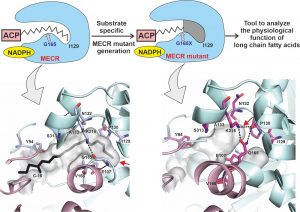Cellular respiration is a complex and highly regulated process that allows cells to draw energy from nutrition. An international team of scientists from the University of Oulu, Heidelberg Institute for Theoretical Studies and the University of Warsaw investigated the important role of long-chain fatty acids in guiding this process. The findings were published in Nature Communications.
They are tiny and highly efficient energy factories operating inside our cells. Often referred to as “powerhouses”, mitochondria extract most cellular energy from nutrition. Researchers from the University of Oulu, (Finland), the Heidelberg Institute for Theoretical Studies (HITS, Germany), and the Faculty of Physics of the University of Warsaw have now succeeded in demonstrating that long-chain fatty acids produced by mitochondria are essential for the process called cellular respiration. The discovery is ground-breaking as the importance of long-chain fatty acids in this process had not been previously known, and the results open up a completely novel approach.
The study is part of a more extensive research project investigating the connection between cellular respiration and the cell’s nutritional state. The scientists used a protein engineering method, in which the mutants of the so-called MECR enzyme involved in mitochondrial fatty acid synthesis were designed using computational molecular modelling, along with structure determination by crystallography, and other experiments to validate the predictions.
The experiments in this interdisciplinary study were carried out by biochemists and crystallographers from the Faculty of Biochemistry and Molecular Medicine of the University of Oulu and Biocentre Oulu, while the molecular modelling was done by computational biophysicists from the Heidelberg Institute for Theoretical Studies (HITS) and the University of Warsaw.




